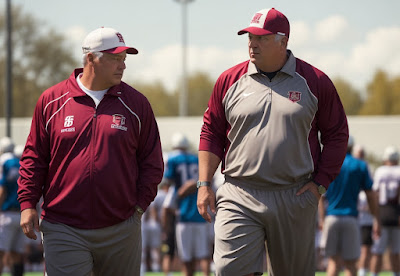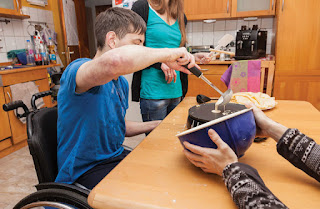How can recovery learning communities help disabled young adults achieve independent living?
For young adults with disabilities, achieving independent living can be a challenging and sometimes daunting task. The transition from adolescence to adulthood comes with various hurdles, and these challenges can be even more significant for those with disabilities.
However, there is a growing movement towards creating supportive environments known as Recovery Learning Communities (RLCs) that provide vital resources and opportunities for disabled young adults to develop the skills and confidence necessary for independent living. This article will explore the concept of RLCs, their role in fostering independence among disabled youth, and the benefits they offer.
Understanding Recovery Learning Communities
Recovery Learning Communities (RLCs) are community-based initiatives that promote personal growth, recovery, and independence for individuals living with disabilities. These communities provide a supportive and inclusive environment that empowers young adults to learn, develop, and thrive. While RLCs are not limited to any specific disability, they often focus on mental health challenges, developmental disabilities, and other conditions that can affect one's daily life.
RLCs aim to create a sense of belonging and purpose for disabled young adults by offering various services and activities. These can include education and skill-building programs, peer support, and access to community resources. In essence, RLCs are built on the idea that recovery is an ongoing process, and everyone has the potential to learn, grow, and lead an independent life.
The Role of RLCs in Fostering Independence
Following are some of the roles of RLCs in fostering independence:
● Skill Development: One of the critical components of RLCs is skill development. These communities provide disabled young adults with the opportunity to acquire various life skills, such as cooking, budgeting, job readiness, and personal hygiene. Skill-building programs help participants gain practical knowledge and become more self-sufficient.
● Peer Support: Peer support is another crucial aspect of RLCs. Disabled young adults often benefit from interacting with peers who face similar challenges. Sharing experiences and insights with others who understand their struggles can boost self-esteem and provide a sense of belonging. Peer support can also help individuals develop social and communication skills essential for independent living.
● Community Integration: Recovering learning communities work to integrate disabled young adults into their local communities. They organize events and activities that encourage community participation and involvement. This exposure helps individuals become more comfortable in their surroundings and increases their sense of belonging.
● Empowerment: Empowerment is at the core of RLCs. These communities aim to instill a sense of self-worth and self-efficacy in disabled young adults. Empowered individuals are more likely to take control of their lives and make informed decisions, which is vital for achieving independence.
Benefits of Recovery Learning Communities
The following are some benefits of RLCs:
● Improved Quality of Life
Participating in an RLC can significantly improve the quality of life for disabled young adults. Participants gain a sense of purpose and fulfillment by acquiring essential life skills and connecting with their peers. In turn, it can reduce feelings of isolation and depression, which are common among people with disabilities.
● Enhanced Independence
RLCs equip disabled young adults with the skills and knowledge to live independently. As they develop their abilities, they can gain more control over their daily lives and make choices that align with their personal goals and preferences.
● Supportive Environment
RLCs provide a safe and supportive environment for disabled young adults. These communities are judgment-free; participants can feel comfortable discussing their challenges and aspirations. The presence of mentors and support staff ensures that individuals receive the guidance they need to succeed.
● Reduced Reliance on Caregivers
As disabled young adults become more self-sufficient through RLCs, they can reduce their reliance on caregivers. While caregivers are crucial in providing support, achieving independence allows individuals to have more control over their lives and make decisions for themselves.
Challenges and Considerations
Despite the many benefits of RLCs, there are challenges and considerations to keep in mind:
● Accessibility: Not all areas have access to RLCs, which can limit opportunities for disabled young adults. Efforts should be made to expand these communities to reach a broader audience.
● Funding: Recovering learning communities often require funding to operate effectively. Securing financial support is essential to ensure that these communities can continue to provide valuable services to disabled young adults.
● Individual Needs: Every disabled young adult has unique needs and challenges. RLCs are flexible in their approach to catering to individual requirements and preferences.
Conclusion
Recovery Learning Communities are invaluable resources for disabled young adults seeking to achieve independent living. By offering skill development, peer support, community integration, and empowerment, RLCs create an environment that fosters personal growth and recovery. The benefits of RLCs include an improved quality of life, enhanced independence, a supportive environment, and reduced reliance on caregivers.
Elevate your potential with the Northeast Independent Living Program (NILP)! Join us on a journey of growth and empowerment.
Explore our innovative programs and services designed to unlock new possibilities. Seize the opportunity to transform your future.


Comments
Post a Comment